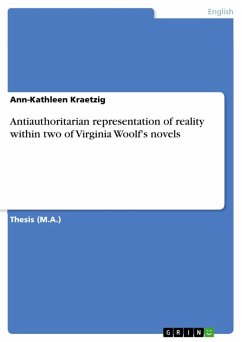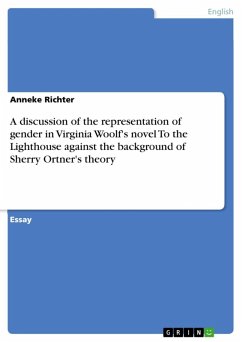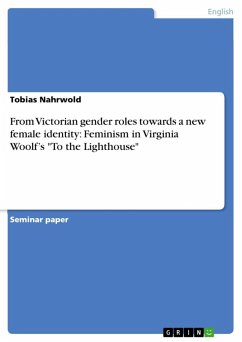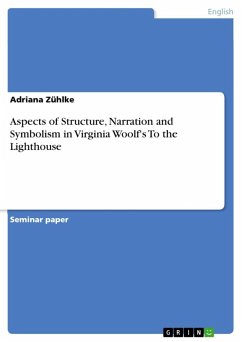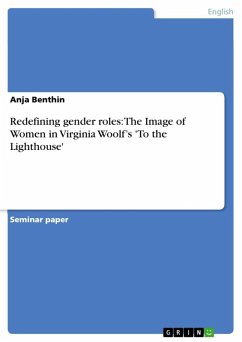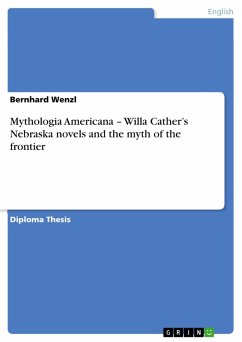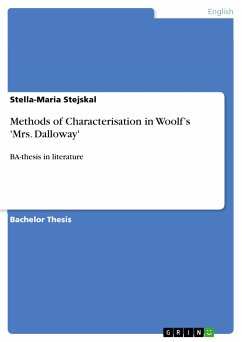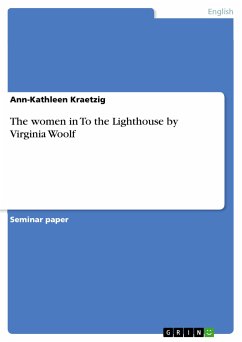Thesis (M.A.) from the year 2008 in the subject English Language and Literature Studies - Literature, grade: 2,7, Bielefeld University, language: English, abstract: "Catch me if you can" was the invitation Virginia Woolf tried to meet in various ways during her career as a writer. This invitation had been uttered by a character in Woolf's essay Mr Bennet and Mrs Brown1, where she expresses her intention to catch reality within her novels. The discussion of representation of reality has a long tradition. Before Virginia Woolf began to think about the concept of reality, the Edwardians tried to transfer reality to their novels by presenting detailed descriptions of the outer world. When the modern writers emerged, they turned their backs on the traditional novel and adopted the current interest in psychology into their works by concentrating on the individual mind. In this context, Virginia Woolf's thoughts and theories are very interesting as she criticised both, the Edwardians as well as some modern writers. That is, she was neither convinced by the technique of the Edwardians, nor by the way her contemporaries approached the psychological representation of reality. She felt disappointed by the former mainly because of their detailed description of the outer world which she regarded as superfluous, and blamed the latter for their monological, unrestricted representation of the mind. Although Woolf supported the modern tradition to concentrate on the mind rather than on plot, she had an aesthetical claim which was incompatible with the erratic stream of consciousness technique. Additionally, she questioned the objectivity of a monological representation and searched for new ways to catch and represent reality. The problem was thus, how to convert her intentions into her writing.
Dieser Download kann aus rechtlichen Gründen nur mit Rechnungsadresse in A, B, BG, CY, CZ, D, DK, EW, E, FIN, F, GR, HR, H, IRL, I, LT, L, LR, M, NL, PL, P, R, S, SLO, SK ausgeliefert werden.

